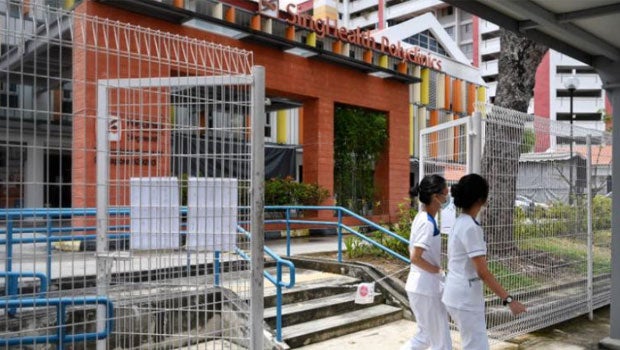HealthXchange will NEVER ask you to transfer money over a call. If in doubt, call the 24/7 ScamShield helpline at 1799, or visit the ScamShield website at www.scamshield.gov.sg.

SINGAPORE - A group of 250 Tampines residents have become among the first to get a sneak peak of what Singapore's healthcare revamp could look like.
In November last year, they enrolled in a six-week programme in which each person got a personalised care plan from SingHealth polyclinics, including recommendations on health screenings they should go for and ongoing community activities they might be interested in.
Professor Lee Chien Earn, SingHealth's deputy group chief executive of its regional health system, said the pilot scheme called Health Up! is an example of what the nationwide shift towards preventive health could look like.
The group will also work with general practitioners, nurses and other community agencies to meet residents' needs beyond the clinics, he said.
Singapore has three public healthcare clusters, comprising SingHealth, the National Healthcare Group (NHG) and the National University Health System (NUHS).
Under the changes announced by the Health Ministry last week, each cluster will take charge of up to 1.5 million patients, working to keep them healthy for as long as possible.
While Singapore has a highly efficient system for looking after people who need acute medical care, data shows that the country does less well at keeping people healthy, observed NHG group chief executive Philip Choo.
"We call ourselves 'healthcare', but actually we are doing illness care. We are built for illness care and we are highly efficient in what we do," he said.
"We, however, do not go out to seek people who are not sick," he said of the lack of broader efforts to ensure healthy people stay well.
To change this, Prof Choo said NHG will work with GPs, to not just prescribe medicine but also serve as coaches to help patients make better lifestyle choices, which will mean fostering strong relationships between individuals and their doctors.
The group will also ensure that the GPs have the right resources and are properly linked with the cluster.
NUHS deputy chief executive Chua Song Khim acknowledged that there is much to be done.
"We will step up efforts to reach more residents, especially those who have not had the opportunity to seek medical care or take up relevant recommended health screenings and vaccinations," he said.
The new approach will not just focus on the traditional indicators of good health - that is, the numbers on a weighing scale or blood pressure monitor.
SingHealth's Prof Lee said: "We aim to journey with residents from birth and through their different life stages, as we consider other factors such as their social, environmental, lifestyle and behavioural risks which may affect their health."
Get the Health Buddy App
© 2025 SingHealth Group. All Rights Reserved.













 Get it on Google Play
Get it on Google Play